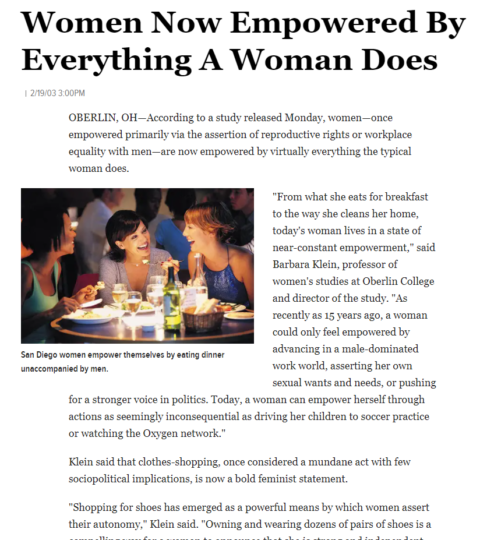Ever since the 1970s, the entrances to many American Jewish institutions have boasted a single bust. It is not of Theodore Herzl, founder of the Zionist movement, or of Israel’s preeminent leader, David Ben-Gurion, nor even of any prominent American Jew — Justice Louis Brandeis or Rabbi Abraham Joshua Heschel. The likeness is not flattering. Beneath tightly bunned hair, the face is unsmiling, its features decidedly bland. Their owner never graduated college, wrote a transformative book, or commanded an army. Still, that statue embodies an ideal to which most American Jews aspire: at once patriotic yet open-minded, liberal but muscular, courageous and caring. The bust, moreover, is of a woman and not just any woman. With an accent as flat as the Midwestern plains, four packs of unfiltered cigarettes a day and the omnipresent purse that held them, the clunky shoes and grandmotherly attire, she was Everywoman. Yet, in a rags-to-preeminence story so appealing to Americans, that woman rose to become the prime minister of Israel. She was Golda Meir — or, as she’s still colloquially known, simply, Golda.
Until my grandmother’s death at the age of 100, she claimed that the proudest day of her life was hosting Golda for a fundraising event in her Boston home. In 1973, and again in 1974, a Gallup poll named Golda “Woman of the Year”, the only non-American ever to achieve that title, garnering twice as many votes as the runner-up, Betty Ford. Though no feminist — Ben-Gurion once called her “the only man in the government” — she became a poster-child of women’s liberation, appearing under the banner, “But Can She Type?” She served as the subject of two Broadway plays, several documentaries, and a made-for-television movie. Golda characters appear in a variety of productions, from Steven Spielberg’s Munich to season 26, episode 1 of The Simpsons. No fewer than nine English-language biographies have been written about her, in addition to her own memoir, and the recollections of her son. She was — and to a large extent, has remained — an American icon.
Not so for Israelis. For 50 years, the name Golda has been associated with reckless hubris, with humiliation and trauma and the loss of an innocent Israel that can never be retrieved. Most bitterly, the name Golda evokes the memory of the 2,656 Israeli soldiers — 83 times the number, proportionally, of Americans lost on 9/11 — killed on her watch. Israel has no end of streets and facilities named for Ben-Gurion, for Prime Ministers Levi Eshkol, Yitzhak Rabin, and Menachem Begin, but there are few Golda Meir boulevards or university halls. New York has Golda Meir Square, complete with that unprepossessing bust, but not Tel Aviv or Jerusalem. Only among Israeli children, born long after her death, does Golda elicit any excitement as the name of a popular ice-cream chain.
Now, half-a-century after her purportedly disastrous performance during the 1973 Yom Kippur War, there are attempts to revisit Golda’s legacy, to examine it in the light of recently released documents, and to reflect on the complex human being behind the bust. Spotlighting these revisions is a bold and riveting new film by Academy Award-winning director Guy Nattiv, starring the incomparable Helen Mirren. After portraying Queens Elizabeth I and II and Catherine the Great, Mirren praised her latest character “one of the most extraordinary I’ve ever played.” That estimation is more than illustrated by the movie simply titled Golda.
[…]

Yom Kippur War — Sinai front 6-15 October, 1973. (via Wikipedia)
Golda Meir remained in her post for another eight months while the people of Israel seethed. Though the Agranat Commission accepted her claim that she acted solely on the defense establishment’s advice and cleared her of any personal responsibility for the war, the population resented the blame placed almost solely on the army. The country, devastated emotionally and economically, was further traumatized by terrorist attacks that killed 52 civilians and wounded 150. Later that year, terrorist leader Yasser Arafat, a holster on his hip, received a standing ovation from the UN General Assembly, which went on to equate Zionism with racism. Succumbing to Arab pressure, 24 of the African countries with which Golda helped establish relations cut ties with Israel. In 1977, the degraded Mapai Party for the first time lost an election to Menachem Begin’s Likud, ending what many Israelis still regard as the state’s golden age.
Such painful events are barely touched upon in either of the Golda films, which prefer to conclude her story with Sadat’s historic visit to Israel in November 1977. The subsequent peace process resulted in the signing of the Egyptian-Israeli peace treaty in 1979, a year after Golda’s death.
Yet her legacy endures — especially now, on the 50th anniversary of the war. Though her standing remains highest in the United States — the Israel National Library reports more searches for her name in English than in Hebrew—in Israel, too, her record is being reconsidered. Here was a woman without military experience who had to rely on men whose expertise on military matters was above reproach. Here was a woman who, when many of those men buckled to pressure, remained clear-headed and strong. And here was a woman who, contrary to long-held wisdoms, repeatedly held out her hand for peace.
Some critics have been unkind to Golda. They take issue with the film’s concentration on her career’s least illustrious period and with the allegedly one-dimensional depiction of a personality known to be compassionate one minute but backbiting the next, alternately maternal and coarse. Most expressed discomfort with the director’s obsession with Golda’s cigarettes — they are practically actors — which earned the film a PG-13 rating for “pervasive smoking”. I, for one, would have liked to see more of Golda’s insecurities about her lack of higher education, military experience, and Hebrew eloquence. I would have welcomed more of the swift-witted Golda who once quipped to Kissinger, arriving in Tel Aviv after exchanging kisses with Egyptian and Syrian leaders, “Why, Mr. Secretary, I didn’t know that you kissed girls, too!”
Nevertheless, Golda must take its place alongside other outstanding portraits of leaders in crisis. Like Gary Oldman’s Churchill in Darkest Hour and Bruce Greenwood’s Kennedy in Thirteen Days, Helen Mirren’s Golda Meir offers a profile of greatness in the face of overwhelming adversity. These are films that, rather than merely report and redramatize facts, show us character. And Golda — the woman, not the myth — should continue to generate our interest as well as our respect. The Everywoman behind the bust should still be revered.




















